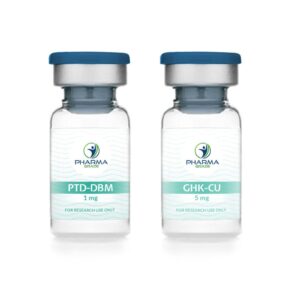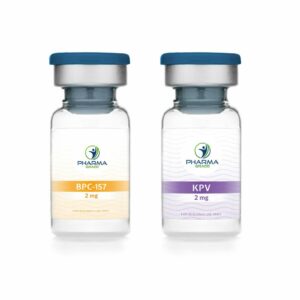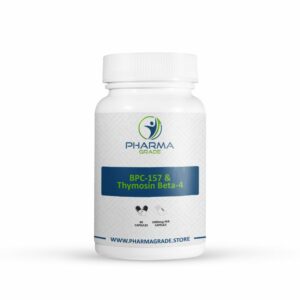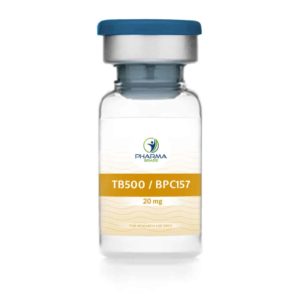Sarms For Weight Loss
Sarms For Weight Loss Is your goal to shed bodyweight fast? To look in the mirror and see a well-defined, big muscle or lose that excess fat? – Your first line of action may be
When it comes to post-operative care and recovery, healthcare professionals are always on the lookout for innovative approaches to enhance the healing process. Peptides, short chains of amino acids, have become a subject of increasing interest in the medical community due to their potential to speed up recovery after surgery. This blog post will examine some of the most promising peptides known for their healing properties for post-surgery, offering insights for healthcare professionals, fitness and wellness enthusiasts considering their use in post-surgery treatment protocols.
Before we explore specific peptides, it’s essential to understand how they function. Peptides serve as biological messengers, carrying information from tissue to blood and vice versa. They can exert a variety of effects, from anti-inflammatory actions to improvements in cellular regeneration, which are vital during the post-operative period.
BPC-157 has been hailed as a “body protection compound” due to its remarkable healing capabilities. Studies have shown that BPC-157 can accelerate the healing of a wide range of tissues, including tendons, muscles, nervous system, and even the skin. This peptide promotes cell survival and angiogenesis, the formation of new blood vessels, which are crucial mechanisms in restoring tissue integrity after surgical intervention.
Another peptide of interest is TB-500 peptide, a fragment of the naturally occurring thymosin beta-4. It has been observed to play a role in tissue repair, promoting cell migration and proliferation. TB-500 has been particularly noted for its systemic effects, which can significantly reduce recovery times by enhancing systemic flexibility and tissue repair.
Looking at GHK-Cu, it’s a copper complex of the tripeptide Glycyl-L-histidyl-L-lysine (GHK-Cu), known to stimulate wound healing and collagen synthesis. It also has anti-inflammatory and antioxidant effects, making it a well-rounded choice for promoting recovery after surgical procedures. Its ability to remodel tissue and enhance recovery from skin injuries and surgical incisions places it at the forefront of post-surgery peptides.
The combination of CJC-1295 and Ipamorelin is often mentioned in discussions about healing peptides. CJC-1295 is a growth hormone-releasing hormone (GHRH) analogue, while Ipamorelin is a selective growth hormone secretagogue. Together, they stimulate the body’s natural growth hormone production, providing a synergistic effect that can aid in faster repair and recovery after surgery.
For healthcare professionals interested in utilising these peptides in clinical settings, it’s important to consider the appropriate dosage and administration protocols for post-surgery recovery. Typically, peptides are administered through subcutaneous injections, ensuring direct absorption into the bloodstream. The dosage can vary depending on the patient’s specific needs and the type of surgery undergone.
However, the usage of peptides must align with regulatory standards and clinical guidelines. It’s advised only to use these compounds under the supervision of relevant medical authorities to ensure patient safety and regulatory compliance.
The ongoing research into peptides continues to reveal their potential as powerful healing agents. Their ability to target specific areas and stimulate recovery while minimising the risk of side effects positions them as an exciting development in post-surgery care. It speaks to a future where recovery times may be significantly shortened, and patient outcomes are improved.
For those in the healthcare profession and individuals dedicated to fitness and wellness, the understanding and application of healing peptides can make a profound difference in post-surgery recovery. Whether it’s BPC-157’s versatile healing, TB-500’s tissue repair potential, GHK-Cu’s collagens synthesis, or the growth hormone boosting effects of CJC-1295/Ipamorelin, it is clear that peptides are at the frontier of next-generation healing modalities.
[1] Skin Regenerative and Anti-Cancer Actions of Copper Peptides, MDPI, Cosmetics 2018, 5(2), 29, Loren Pickart and Anna Margolina
[2] Pentadecapeptide BPC 157 and the central nervous system, Neural Regen Res. 2022 Mar; 17(3): 482–487. by Jakša Vukojević, Marija Milavić et al.
[3] Thymosin β4: A Multi-Faceted Tissue Repair Stimulating Protein in Heart Injury, Curr Med Chem
. 2020;27(37):6294-6305. by Geir Bjørklund, Maryam Dadar, Jan Aaseth, Salvatore Chirumbolo
ALL PRODUCT INFORMATION AND ARTICLES ON THIS SITE ARE FOR EDUCATIONAL PURPOSES ONLY
DISCLAIMER: All products sold by PharmaGrade.Store are for research and laboratory use only. These products are not designed for use or consumption by humans or animals. They are not to be classified as a drug, food, cosmetic, or medicinal product and must not be mislabelled or used as such. By purchasing from our Website the buyer accepts and acknowledges the risks involved with handling of these products. All articles and product information provided on this Website are for informational and educational purposes only. Handling and use of these products should be restricted to suitably qualified professionals

NEW

NEW

NEW

SALE
Sarms For Weight Loss Is your goal to shed bodyweight fast? To look in the mirror and see a well-defined, big muscle or lose that excess fat? – Your first line of action may be
Peptides Weight Loss Losing weight can be challenging, especially if you have tried several diets and exercise routines without seeing significant results. However, recent advances in medical research have led to the discovery of peptides
Aging is a natural process that affects all living beings. However, in today’s society, the desire to look young and vibrant has become more important than ever. Many people spend significant amounts of money
Sarms For Cognition & Memory Cognition and memory are two essential aspects of our daily lives that we rely on heavily. Whether it’s studying for an exam, memorizing a presentation, or recalling important information at
ALL PRODUCTS AVAILABLE ON THIS WEBSITE ARE FOR RESEARCH PURPOSES ONLY.
DISCLAIMER: All products on this site are exclusively for research and laboratory purposes only. The products on this site are not intended for use in humans or animals, nor are they designed to diagnose, treat, cure or prevent any illness. All information and content provided on our website are purely for educational purposes. All products are to be handled by suitably qualified and properly trained research professionals only.
